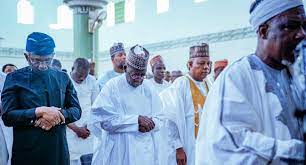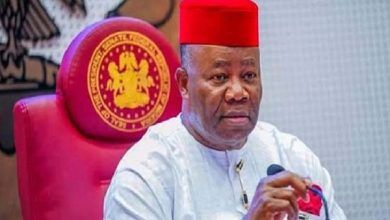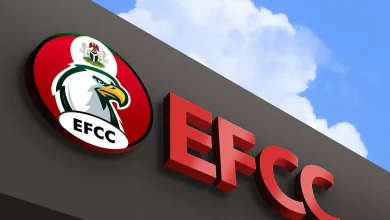
A Federal High Court in Abuja has summoned the Minister of Interior, Olubunmi Tunji-Ojo, and the Attorney-General of the Federation (AGF), Lateef Fagbemi, to appear before the court on January 16, 2025. They are to explain why the implementation of the proposed expatriate employment levy (EEL) taxation regime should not be halted.
The ruling was issued by Justice Inyang Ekwo on Thursday following a motion filed by Patrick Peter, counsel for the plaintiff, the Incorporated Trustees of New Kosol Welfare Initiative. The group is seeking an order to restrain the federal government from implementing the new expatriates’ taxation policy until the motion is heard and decided.
The suit, filed under case number FHC/ABJ/CD/1780/2024, calls for an interim injunction against the implementation of the policy. According to the court order, the Minister of Interior and the AGF are to be served with the motion within three days.
The motion is in response to a taxation policy announced by the federal government on February 27, 2024. Under the proposed EEL regime, Nigerian companies and organizations employing foreign expatriates would be required to pay a tax for each expatriate. The tax is set at $15,000 (approximately N23 million) per year for expatriates at the director level, and $10,000 (about N16 million) per year for non-director expatriates.
The suit also outlines several penalties for non-compliance with the EEL, including fines for incomplete or inaccurate reporting, failure to register expatriates within 30 days, and failure to renew the EEL before its expiration. Corporate entities found in violation of the policy could face penalties up to N3 million, with serious consequences, including up to five years imprisonment and/or a fine of N1 million for inaccurate reporting.
Raphael Ezeh, the program implementation coordinator for the New Kosol Welfare Initiative, argued in the affidavit that the proposed taxation regime would have a detrimental effect on Nigeria’s economy. He described the policy as an “anti-people” initiative, arguing that it could stifle economic growth by imposing burdensome regulations on companies hiring foreign workers.
Ezeh also raised constitutional concerns, stating that only the legislative arm of government, not the executive, has the authority to impose taxes on citizens and corporate bodies. He cited Section 59 of the 1999 Constitution (as amended), which governs the processes for taxation in Nigeria.
The federal government had initially suspended the implementation of the EEL in 2024 to allow for further consultations with relevant stakeholders, including the Nigerian Association of Chambers of Commerce, Industry, Mines, and Agriculture (NACCIMA).
The court hearing on January 16 will provide further clarity on whether the implementation of the EEL can proceed, pending the resolution of the legal challenges raised by the plaintiff.





